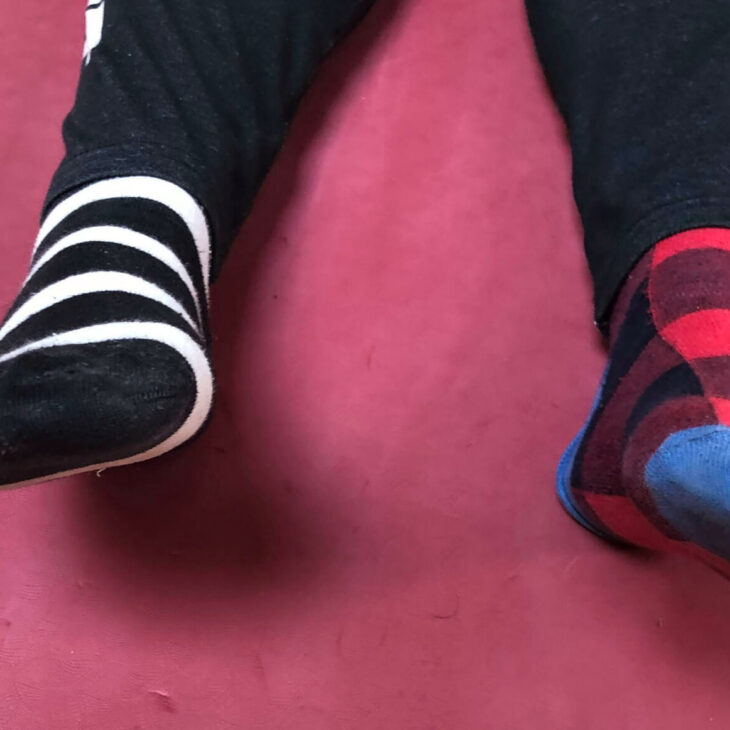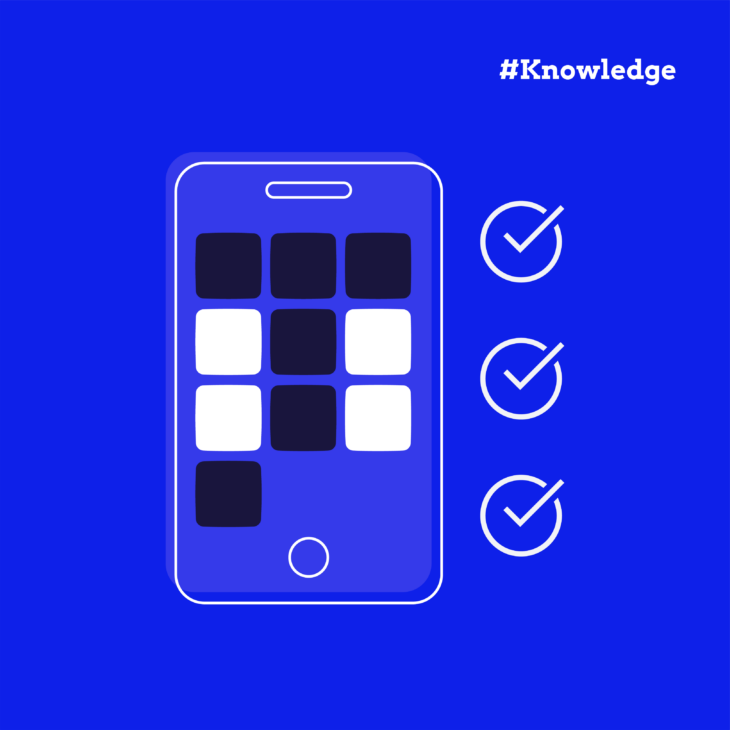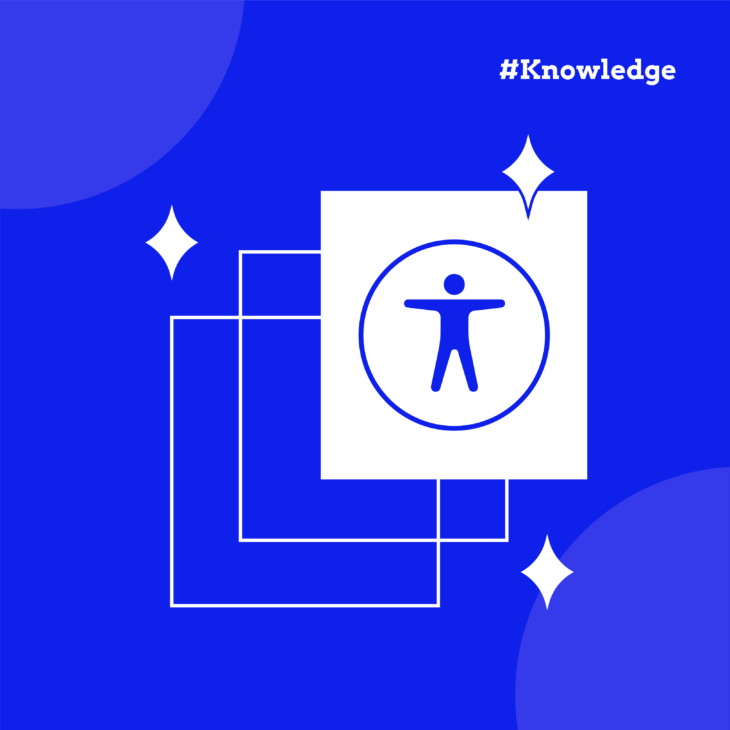Rian Rietveld is an authority in web accessibility. As an IAAP Certified Professional, she has audited and improved accessibility for numerous organisations. For many years, she has shared her expertise through training sessions with developers, website owners, and content creators. Her hands-on experience and practical teaching approach ensure you’ll learn real-world solutions you can apply straight away.
In the midst of the COVID-19 pandemic, Wouter Honselaar joined Level Level for his internship. Level Level is the web agency that created The A11Y Collective.
We were so impressed with him that he stayed on. Wouter stutters, a disability that is not often mentioned in the well-known list of disabilities. More than 80 million people worldwide stutter. What is the impact of stuttering on Wouter’s life, and how can we best support him? He answers all the questions candidly. Key advice: “Treat me like everyone else.”
A chat with Wouter
Hey Wouter, you’ve been part of our team for a while now. How did you end up at Level Level?
I started in 2021 as a graduate student in HBO-ICT. The atmosphere here is so great, and the work is so interesting that I wanted to stay. Fortunately, Level Level was still looking for a hosting engineer, so it was a perfect match!
Through an online internship market (during the COVID-19 pandemic), I got in touch with Level Level. During a call with two employees, I immediately typed that I stuttered and, due to the anxiety, preferred to communicate through typing. They passed this information on to others at Level Level, so the people I would be working with already knew about it before I started. I found that very comforting.
Can you tell us more about stuttering?
I began stuttering when I was 9 years old; before that, I spoke as fluently as non-stutterers. It was probably always there, but it started after I was bullied at primary school.
Stuttering should be seen as the tip of the iceberg: the disrupted speech is what others notice, but I am aware of much more. It goes deeper than you think.
The biggest misconception about stuttering is that you can easily do something about it. This is not the case; stutterers don’t stutter for fun. Even though it develops later in life, it is not a choice.
If you already have an (unconscious) anxious expression when confronted with an unexpected question from a stranger, and you are afraid of stuttering, the other person feels uncomfortable and wants to get out of that situation as quickly as possible.
In 2021, I attended an intensive four-day course focused on applying speech techniques in practice. Since then, I no longer feel insecure about speaking; it has been very helpful. It was nice to see others with similar struggles, but I also noticed that others were inspired by how I approach things. I would like to inspire other stutterers with my motto “just do it.”
When I was younger, I often noticed that people didn’t know how to deal with me. For example, when someone on the street asked me a question. Nowadays, I don’t experience that anymore, probably because I’m older and appear more mature and self-assured.
When we think about people with disabilities, we don’t immediately think about stuttering.
I see it the same way. It is an underrepresented disability, and people often have no idea how important it is to feel like you can express yourself in the way you want, by simply speaking.
As a stutterer, that’s not possible, and it can have a significant impact on how much anxiety you experience. Often about little things, like being afraid that a stranger might ask you something.
We don’t consider stuttering a disability because people who stutter can do everything that non-stutterers can do; it just takes longer to speak. People often have no idea about the tension and uncertainty I feel when I want to say something.
In what situations do you experience stuttering as a disability?
Especially with presentations. I don’t find giving presentations scary, and I thought I was always good at it before I started stuttering. But in presentations, everything revolves around how your message comes across. It is very challenging to deliver a good presentation as a stutterer.
Many people of my generation don’t like making phone calls. Sometimes, a customer calls the office and asks for me. I still feel a bit the adrenaline, because it remains nerve-wracking, but I do appreciate personal contact. In some situations, I now prefer to call a stranger rather than sending an email.
Sometimes, conversation partners don’t even realize that I stutter. They think there’s a problem with the connection. It happened once that a client interrupted the call because they thought the connection was broken. However, most people recognize it immediately and give me all the time I need.
How can we raise awareness and acceptance of stuttering?
A good question, I think by talking about it. Sometimes, when I directly ask colleagues if they find it difficult that I stutter, they say it really doesn’t bother them.
Even colleagues who are a bit less patient, are patient when I stutter, and that’s very comforting. Others see through it more easily than stutterers themselves. Especially in the past, I had a lot of trouble with that.
What can we do in the workplace to help you?
Treat me like everyone else. Don’t give the impression that you are taking extra time to listen to me (e.g., sitting down while you usually stand when chatting with someone).
Many people are curious about how they can help me when I get stuck on a word, but they often don’t dare to ask. It’s not really taboo; it’s more that they don’t want to confront me with the fact that I stutter.
There’s already so much emphasis on my speech that they often find it uncomfortable to inquire about it. I find that discussing sensitive topics is actually beneficial. This reduces stress for both the conversation partner and myself.
I am pragmatic: when I want to say something, I’m fine with someone completing my sentences. It’s better not to look away; otherwise, I start to doubt if the person is still listening. If someone looks at me, it’s also a trick to make stuttering less severe: if I focus on someone’s eyes (naturally, so it doesn’t become uncomfortable). Then I have something to pay attention to, making speaking less central. This helps a lot.
Wouter’s takeaway
I’ve loved speaking since I was a child. Especially after the group therapy I attended, this feeling has returned completely. If I let stuttering hold me back, I’ve lost to it. I don’t want my life to be dictated by it, so nowadays, I always say what I want to say. I won’t let it stop me; I am stronger than stuttering.
What can you do for people who stutter?
The best way to help people who stutter is to provide more ways to contact you. Don’t expect your visitors to always be able to call you. This also is important for people with anxiety, visitors who are deaf or hard of hearing and also for non native speakers.
Provide not only a telephone number, but also a contact form or email address and, if possible, an accessible chatbox. Then your visitors can choose the contact option they find the most comfortable for them. Learn more about how to communicate with your visitors in our course Writing accessible content for the web.






